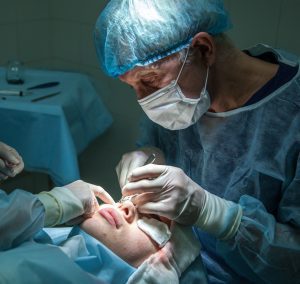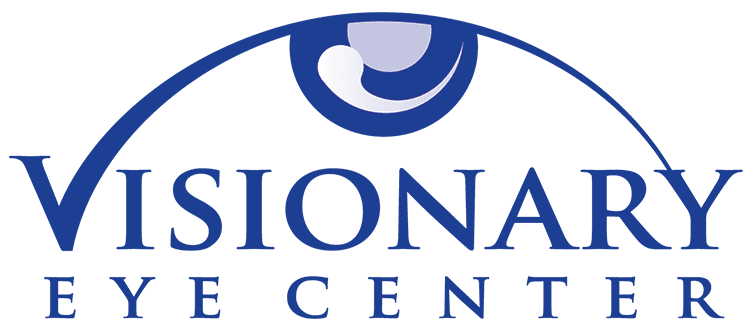SHOP DRY EYE CARE TODAY!
Use code VISIONARYEYE20 at checkout for 20% off!
Few developments in the field of ophthalmology have been as revolutionary as the advent of LASIK eye surgery. Originating from the groundbreaking surgical innovation of photorefractive keratectomy (PRK), LASIK (Laser-Assisted In Situ Keratomileusis) represents a quantum leap in refractive surgery. Today, we at Visionary Eye Center in Reno, NV, invite you on a journey to understand LASIK better and put your safety concerns to rest. Visionary Eye Center is a premier eye care center when it comes to completing the LASIK procedure in Nevada.
The history of refractive surgery is a compelling narrative of innovation and refinement. The early days saw procedures like radial keratotomy that, despite being pioneering, had their fair share of limitations. The game-changer came in the form of PRK and LASIK, both of which utilize a laser to reshape the cornea—the transparent front surface of the eye.
While both procedures utilize similar technology, they differ in their methods. In LASIK, a hinged flap is created on the cornea, folded back, and the laser is used to reshape the underlying corneal tissue. Post-treatment, the flap is repositioned, serving as a natural bandage. This allows for quicker visual recovery compared to PRK, where the laser is applied directly to the corneal surface, necessitating a longer healing period.
LASEK (Laser Epithelial Keratomileusis) is another variant that marries elements of both LASIK and PRK. The procedure involves the gentle displacement of the corneal epithelium before the laser treatment, which is then repositioned, often resulting in less postoperative dryness compared to LASIK.

While LASIK has reshaped the landscape of refractive surgery, it may not be the ideal solution for everyone. For patients with high prescriptions or thinner corneas, or for those uncomfortable with the permanent removal of corneal tissue, an ICL (Implantable Contact Lens) is a practical alternative. This procedure involves placing a small lens between the iris and the natural lens of the eye. Importantly, the ICL procedure is reversible, causing minimal trauma to the eye.
Patients aged 40 and above, referred to as presbyopic patients, have other alternatives. One of them is the use of corneal inlays, such as the Kamra or Raindrop, which are inserted into the cornea. They create a pinhole effect, extending the eye's depth of focus and enhancing near vision. Another option is refractive lens exchange, which replaces the eye's natural lens with an intraocular implant lens. This procedure is akin to cataract surgery, with implant lenses capable of being tuned for distance, monovision, or even multifocal options.
For those reluctant about surgical correction, orthokeratology offers an effective, non-surgical route. This involves the use of specially designed gas permeable contact lenses worn during sleep that temporarily reshape the cornea, providing clear vision during the day without the need for glasses or contact lenses.
Visionary Eye Center are the premier eye doctors in Reno. We believe each person's visual system paints a unique view of the world, and thus, their vision correction solutions should be tailored to their individual needs.
Our practice prides itself on independence. As a standalone entity, we offer a personalized experience, ensuring a one-on-one relationship with our doctors. We fuse this old-fashioned, trust-based doctor-patient relationship with cutting-edge technology and contemporary treatment options, giving you the best of both worlds.
Education is empowerment. Following this philosophy, we strive to inform our patients about their treatment options, helping them make the most educated decisions about their care.
At Visionary Eye Center, we are committed to delivering unparalleled eye care using state-of-the-art, patient-friendly procedures like LASIK in Nevada. The evolution of refractive surgery demonstrates significant strides in ensuring safety and efficacy in vision correction. Whether you're considering LASIK or exploring other options, our team is ready to guide you every step of the way, taking care of your eye care needs while putting your safety concerns to rest.

LASIK eye surgery can be used to achieve 20/20 vision or better, as an alternative to eyeglasses or contact lenses. This is a type of laser eye surgery, and it works best for patients who have a moderate degree of refractive error and no unusual vision problems.
LASIK surgery involves first numbing the eyes with drops and taking a mild sedative medication, then the surgeon uses a special type of cutting laser to precisely alter the curvature of your corneas. As the laser beam pulses, a tiny amount of corneal tissue is removed to allow the surgeon to flatten the curve of your corneas or make it steeper to correct your vision.
There are multiple variations of LASIK surgery, but the most common procedure involves the surgeon creating a flap in the cornea and raising it up before reshaping it. The flap is then placed back into its original position, and vision recovery usually only takes 1 to 2 days. Sometimes only a very thin flap is raised or no flap is raised or even used at all; it really depends on your individual circumstances and preferences.
LASIK surgery has many benefits when it comes to correcting your vision almost immediately, is long-lasting, and can continually be improved. Here is a summary of the top benefits of LASIK that will play a role in your decision:
Your current and past eye health, and any disorders that run in your family will play an important role in whether or not it’s a good idea to get LASIK surgery, which your eye surgeon will ask you about. The following are some complications that could result in poor outcomes after the LASIK surgery, along with side effects of the surgery, that can help you to weigh if LASIK is the best option for you.
Pre-existing eye health conditions that can cause complications with LASIK:
Possible Side Effects and Complications:
 When considering LASIK surgery, there are several personal health conditions and medications you take that may not make you a good candidate, so your surgeon will review and assess all of these to determine if the procedure is right for you. The following are some factors that would NOT make you a good candidate for LASIK; if you don’t have these, you are more likely to move forward with the surgery, just always check with your surgeon first:
When considering LASIK surgery, there are several personal health conditions and medications you take that may not make you a good candidate, so your surgeon will review and assess all of these to determine if the procedure is right for you. The following are some factors that would NOT make you a good candidate for LASIK; if you don’t have these, you are more likely to move forward with the surgery, just always check with your surgeon first:
When seeking out a LASIK surgeon, you can start by asking friends and family members who have had successful procedures for suggestions, along with an eye care professional. Your local LASIK Reno provider, also voted best optometrist in Reno, is Visionary Eye Center. If you’re ready to find out if LASIK is right for you, schedule a Reno LASIK Procedure Consultation at Visionary Eye Center and contact us for any questions!
 775.827.1100info@visionaryeyecenter.com8175 South Virginia Street Suite B-900
775.827.1100info@visionaryeyecenter.com8175 South Virginia Street Suite B-900